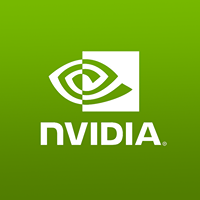Nvidia's Market Meltdown: A Cautionary Tale for Tech Investors
September 4, 2024, 9:57 am
Nvidia, the titan of artificial intelligence, recently faced a staggering setback. On September 3, 2024, the company experienced a record loss of $279 billion in market value. This drop, a staggering 9.5% in a single day, sent shockwaves through Wall Street. It was the largest one-day decline for any U.S. company in history. Investors, once riding high on the AI wave, suddenly found themselves in turbulent waters.
The selloff was not an isolated incident. It reflected broader concerns about the tech sector and the sustainability of AI investments. The PHLX chip index, which tracks semiconductor stocks, plummeted 7.75%, marking its most significant drop since 2020. The market was reacting to tepid economic data and a sense of caution that had begun to permeate investor sentiment.
Nvidia's quarterly forecast had failed to meet the sky-high expectations set by investors. The company had been riding a wave of optimism, with its stock nearly tripling in value throughout 2024. However, the recent forecast was a cold splash of reality. Investors began to question whether the massive capital expenditures in AI would yield the expected returns. The fear was palpable. Was the AI gold rush turning into a mirage?
Intel, another heavyweight in the semiconductor arena, also felt the heat. Its shares dropped nearly 9% amid reports of a restructuring plan aimed at cutting unnecessary businesses. The company’s CEO and executives were under pressure to revamp capital spending. The narrative was clear: even giants like Intel were struggling to navigate the choppy waters of the tech landscape.
The market's unease extended beyond Nvidia and Intel. Major players like Microsoft and Alphabet also saw their shares dip following disappointing quarterly reports. The question loomed large: could the revenues from AI justify the massive investments being poured into it? Analysts at BlackRock pointed out that investors must scrutinize whether companies are making the best use of their resources. The sentiment was shifting from exuberance to caution.
Nvidia's staggering loss eclipsed the previous record held by Meta Platforms, which saw a $232 billion decline in February 2022. This comparison highlighted the magnitude of Nvidia's fall from grace. Once the darling of the stock market, Nvidia now found itself in a precarious position. Despite the recent losses, the company still boasted a year-to-date gain of 118%. However, the optimism that once fueled its rise was now under scrutiny.
The tech sector, particularly the semiconductor industry, had seen a massive influx of capital over the past year. Investors had been betting heavily on AI's potential to revolutionize industries. But as the market began to cool, the risks became apparent. The chip index, while still up 14% in 2024, was now facing headwinds. The S&P 500 also felt the pressure, dropping 2.1% on the same day as Nvidia's decline.
The Federal Reserve's upcoming policy announcement added another layer of uncertainty. Investors were bracing for a potential interest rate cut, but the mixed economic signals left many wondering what the future held. The labor market data, set to be released soon, would be closely watched. Any signs of weakness could further shake investor confidence.
Nvidia's recent forecast had raised the mean analyst estimate for its annual net income to $70.35 billion, up from $68 billion. Yet, this silver lining was overshadowed by the company's plummeting stock price. The chipmaker was now trading at 34 times expected earnings, a significant drop from over 40 in June. This shift indicated a recalibration of expectations among investors.
Broadcom, another player in the AI chip market, also faced challenges. Its shares fell 6.2% ahead of its quarterly report, reflecting the pervasive anxiety gripping the sector. The once-unquestioned growth narrative surrounding AI was now being challenged. Investors were beginning to reassess their positions, weighing the potential rewards against the mounting risks.
In the wake of Nvidia's record loss, the tech landscape appears more fragile than ever. The exuberance that once characterized the AI boom is giving way to a more cautious approach. Investors are now asking tough questions. Are the returns worth the risks? Is the AI revolution sustainable, or are we witnessing a bubble waiting to burst?
As the dust settles, Nvidia's experience serves as a cautionary tale. The tech sector is not immune to the laws of economics. The thrill of innovation must be tempered with prudence. Investors must navigate these waters carefully, lest they find themselves adrift in a sea of uncertainty. The future of AI remains bright, but the path forward is fraught with challenges. The lesson is clear: in the world of tech investing, caution is as valuable as ambition.
The selloff was not an isolated incident. It reflected broader concerns about the tech sector and the sustainability of AI investments. The PHLX chip index, which tracks semiconductor stocks, plummeted 7.75%, marking its most significant drop since 2020. The market was reacting to tepid economic data and a sense of caution that had begun to permeate investor sentiment.
Nvidia's quarterly forecast had failed to meet the sky-high expectations set by investors. The company had been riding a wave of optimism, with its stock nearly tripling in value throughout 2024. However, the recent forecast was a cold splash of reality. Investors began to question whether the massive capital expenditures in AI would yield the expected returns. The fear was palpable. Was the AI gold rush turning into a mirage?
Intel, another heavyweight in the semiconductor arena, also felt the heat. Its shares dropped nearly 9% amid reports of a restructuring plan aimed at cutting unnecessary businesses. The company’s CEO and executives were under pressure to revamp capital spending. The narrative was clear: even giants like Intel were struggling to navigate the choppy waters of the tech landscape.
The market's unease extended beyond Nvidia and Intel. Major players like Microsoft and Alphabet also saw their shares dip following disappointing quarterly reports. The question loomed large: could the revenues from AI justify the massive investments being poured into it? Analysts at BlackRock pointed out that investors must scrutinize whether companies are making the best use of their resources. The sentiment was shifting from exuberance to caution.
Nvidia's staggering loss eclipsed the previous record held by Meta Platforms, which saw a $232 billion decline in February 2022. This comparison highlighted the magnitude of Nvidia's fall from grace. Once the darling of the stock market, Nvidia now found itself in a precarious position. Despite the recent losses, the company still boasted a year-to-date gain of 118%. However, the optimism that once fueled its rise was now under scrutiny.
The tech sector, particularly the semiconductor industry, had seen a massive influx of capital over the past year. Investors had been betting heavily on AI's potential to revolutionize industries. But as the market began to cool, the risks became apparent. The chip index, while still up 14% in 2024, was now facing headwinds. The S&P 500 also felt the pressure, dropping 2.1% on the same day as Nvidia's decline.
The Federal Reserve's upcoming policy announcement added another layer of uncertainty. Investors were bracing for a potential interest rate cut, but the mixed economic signals left many wondering what the future held. The labor market data, set to be released soon, would be closely watched. Any signs of weakness could further shake investor confidence.
Nvidia's recent forecast had raised the mean analyst estimate for its annual net income to $70.35 billion, up from $68 billion. Yet, this silver lining was overshadowed by the company's plummeting stock price. The chipmaker was now trading at 34 times expected earnings, a significant drop from over 40 in June. This shift indicated a recalibration of expectations among investors.
Broadcom, another player in the AI chip market, also faced challenges. Its shares fell 6.2% ahead of its quarterly report, reflecting the pervasive anxiety gripping the sector. The once-unquestioned growth narrative surrounding AI was now being challenged. Investors were beginning to reassess their positions, weighing the potential rewards against the mounting risks.
In the wake of Nvidia's record loss, the tech landscape appears more fragile than ever. The exuberance that once characterized the AI boom is giving way to a more cautious approach. Investors are now asking tough questions. Are the returns worth the risks? Is the AI revolution sustainable, or are we witnessing a bubble waiting to burst?
As the dust settles, Nvidia's experience serves as a cautionary tale. The tech sector is not immune to the laws of economics. The thrill of innovation must be tempered with prudence. Investors must navigate these waters carefully, lest they find themselves adrift in a sea of uncertainty. The future of AI remains bright, but the path forward is fraught with challenges. The lesson is clear: in the world of tech investing, caution is as valuable as ambition.



